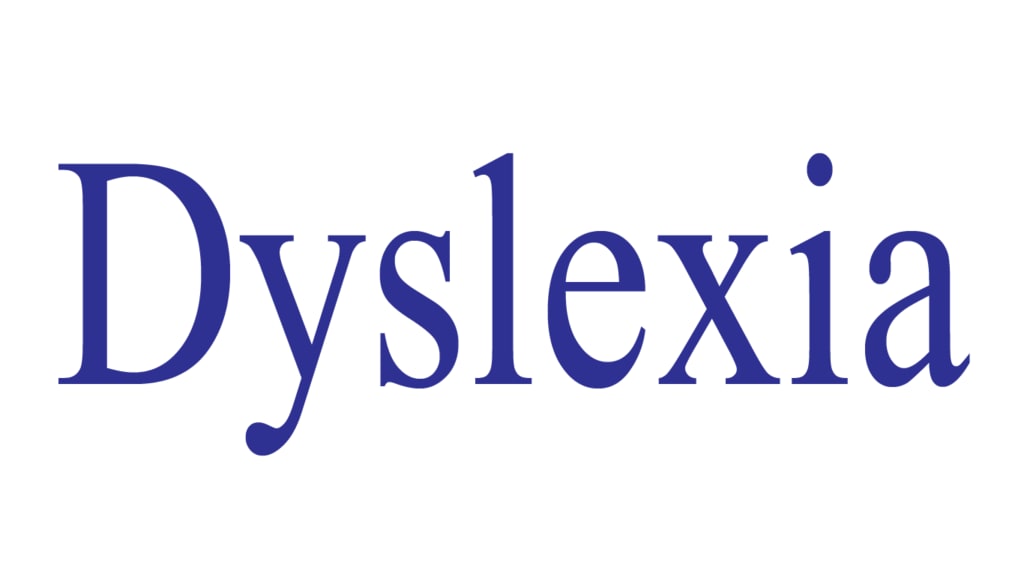Parenting and Dyslexia
Trusting Your Instincts

"My daughter can't say her ABCs or count higher than ten. She writes her B's as D's and sixes as nines," I informed my daughter's preschool teacher.
"She's learning at her own pace and many children her age transpose letters and numbers," answered the teacher.
"Her brother knew his ABC's and wrote his name by her age," I replied.
"Well, children in preschool have a wide learning curve and most catch up by the first grade."
I scratched my head and took my daughter home knowing something wasn't right. Her difficulties were greater than merely lagging behind the other children.
At dinner, when my daughter, Aleah, wanted a particular food item, but couldn't recall the word, she pointed and said, "I want that, please."
"You want what?" I asked, scanning the various dishes on the table.
"That," she said and smiled.
I pointed to one dish. "This? The mashed potatoes?"
She shook her head.
"This? A roll?" I held up a roll.
She nodded enthusiastically. I passed the basket of rolls and stressed, "These are rolls, Aleah. Say rolls."
"Rolls." But within a few moments, she'd forget the word roll.
There were many meals and many occasions when Aleah couldn't remember simple words like bread, rolls, cereal, hamburger, steak, chicken, or fish. All red meat was beef, whether it was a hamburger or steak. All white meat was chicken, whether it was fish or pork. Any bread was usually toast, even if it wasn't toasted.
Even words she knew, she would transform them by dropping off the first syllable. Spaghetti was always spoken as 'ghetti. Even computer became 'puter. I shrugged it off as lots of children say, ghetti and puter.
Names of people were troubling for her, too, and I discovered this one day after school.
"Bye! Anna," my daughter said, waving to the girl I knew to be Debra.
When Aleah got into our car, I asked her, "Isn't that Debra you were waving goodbye to?"
She shrugged.
I described the girl and Aleah replied, "Oh, yeah, but I call her Anna."
"But that's not her name."
"That's okay."
"No, it's not. Would you like someone calling you Sarah?"
"I don't care."
"Well, it's rude to call her something other than Debra."
"Okay, but I can't 'member that."
"Re-member," I reminded her.
Falling Further Behind

Even by nine her handwriting was illegible.
A year passed and Aleah moved from preschool to kindergarten where she fell even further behind. Her classmates were counting to 100 by the end of the year and reading simple books, while Aleah still struggled to recall the alphabet. Most in kindergarten printed their letters and numbers as well as their names. But Aleah reversed many letters and numbers. Her lowercase B's were written as D's. Her sixes were written as nines. Many of her letters were illegible and when we could make out what she wrote, it didn't make any sense.
Yet, we knew she was very bright! She had made the same baby milestones around the same timeframe as her brother had. She could do puzzles and drew very well for her age. She could do simple math. She loved listening to stories and told some good ones of her own. She even pretended to play the guitar and crafted blues lyrics. (I'll save that story for another time.)
Every concern I had, every question I asked was always met with a rational reason and the assurance that she would catch up... Eventually. I asked the school psychologist, her teachers, our physician's assistant. All of them reassured me and tried to dissuade my fears.
Their words felt hollow. Signs were there, right in front of me, every day. No matter whether my mother-in-law or my husband or my doctor told me everything was fine and she'd be okay, I didn't believe them. The signs were there, but to what were they pointing?
Frustrated, I decided to make an appointment with our family physician. We'd seen the physician's assistant and the school psychologist but hadn't been able to get in to see our doctor.
Once at the doctor's office, I described everything Aleah had been doing and the signs I noticed that pointed to something being wrong, being out of the ordinary for a child of her age. He allowed me to explain and then thoughtfully considered all I'd said. Rubbing his chin, he finally glanced up at me and said, "You know, this reminds me of a patient I have who has dyslexia."
Mother's Instincts
This was the beginning. A lightbulb moment! Finally, after years of worrying and being told I was wrong and my daughter would catch up—I had followed my instincts and now we had a direction. The road would be long and hard to follow, but it would be better than walking in circles, getting no where.
So, what did I see that made me think she wasn't just lagging behind and would catch up?
- Difficulty remembering simple words even seconds after she was told.
- Tantrums when asked to read, which was inconsistent with her character.
- Great difficulty reading short sentences with small words from Kindergarten on.
- Reversing multiple letters and numbers when printing: b/d, p/d, s backwards, six/nine, three's backwards, seven's backwards.
- Dropping the prefixes or first part of words when speaking: 'ghetti/spaghetti, member/remember, got/forgot, 'puter/computer
- Slight immaturity compared to her peers. She clung to imaginative play with stuffed toys for years after her peers ceased such play.
These were signs that felt off to me. As a mother, I knew my daughter better than any doctor, psychologist, or teacher. Once we heard she might be dyslexic, we forged a path to discovering what that was and how we could help her. Our doctor recommended a psychologist, and she recommended a child neural psychologist who gave us the full diagnosis. But our journey wasn't over once we had the medical paperwork, it was only beginning.
About the Creator
D. A. Rhine
I'm an author of romance novels, acrylic artist, happy wife of 25 years, and a proud mother of two beautiful, brilliant young adults!






Comments
There are no comments for this story
Be the first to respond and start the conversation.